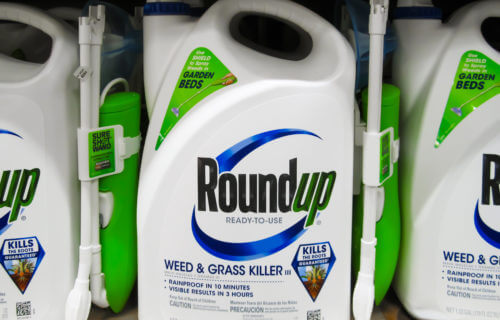INDIANAPOLIS — Ninety-nine percent of pregnant women are exposed to glyphosate, a chemical often found in the weedkiller product Roundup, according to new research from the Indiana University School of Medicine. The study finds that glyphosate may be associated with lower birth weights in babies and a higher risk of needing admission into the neonatal intensive care unit (NICU).
Roundup is often used by farmers and homeowners across the U.S., with high uses in the Midwest for corn and soybeans. Previous studies have found a number of negative effects from pesticide exposure in animal experiments, but not much is known about its effects on human fetal development. What’s more, glyphosate is found in products beyond weedkillers. It’s been found in both packaged and organic foods.
Previous research from the team in 2018 found that glyphosate exposure in 93% of pregnancies was linked to shorter pregnancy terms. Since then, other studies have found similar findings. “Pesticide exposure in pregnancy, especially in early pregnancy, can imprint DNA and alter gene expression,” says lead author Dr. Paul Winchester, a professor of clinical pediatrics, in a statement. “But little is known about how these chemicals can impact fetal development in humans.”

The team observed the pregnancies of 187 women living in Indiana, with the average age being 29. They collected urine samples in the first trimester to detect traces of glyphosate. All but one had it. Once the babies were born, the researchers observed lower birth weights among those whose mothers had high exposure to glyphosate. Increased glyphosate levels during pregnancy was associated with a greater chance of NICU admission.
Another finding in the study concludes that newborns born to women living outside of urban areas are more likely to have a lower birth weight, which falls in line with the mother’s glyphosate levels in the first trimester.
“As a neonatologist, I’m seeing more and more infants with problems like low birth weight as well as mothers with issues like obesity or gestational diabetes,” says Winchester. “We need to keep studying these herbicides long term to find out how they could be causing these issues and what we can do to prevent them.”
The study is published in Environmental Health.
